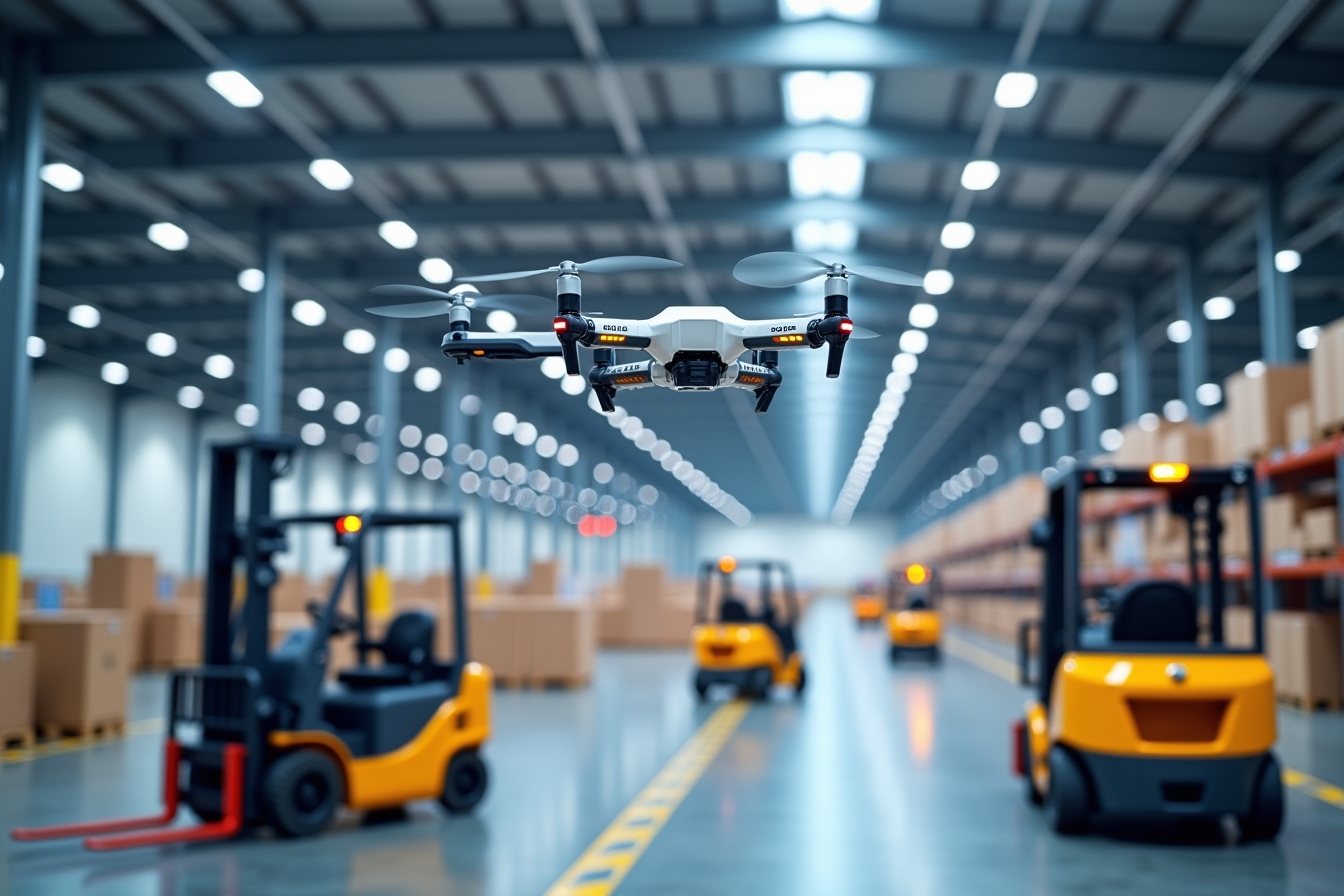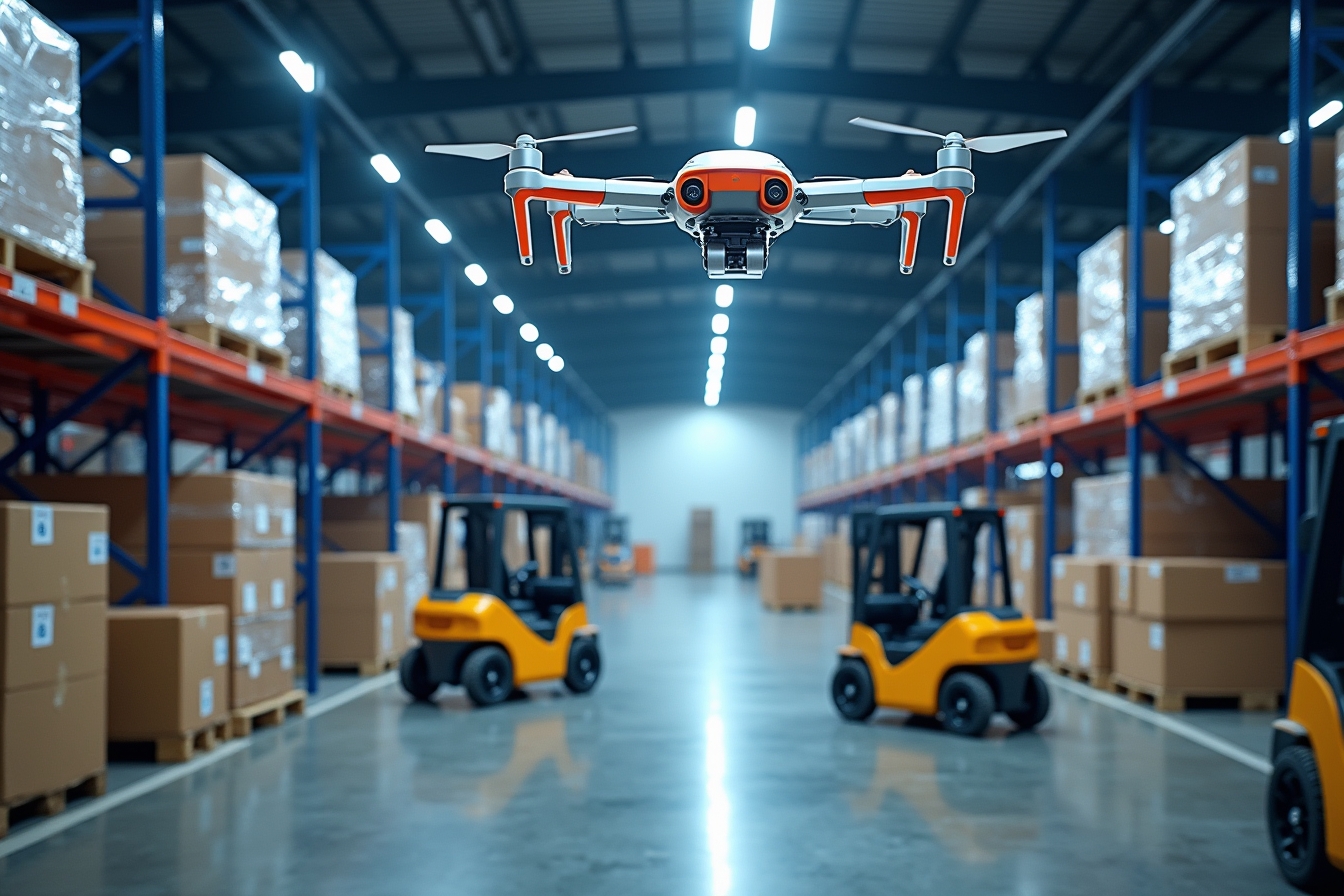Blockchain w łańcuchu dostaw

Blockchain technology offers a decentralized, immutable, and real-time tracking system, making supply chains more secure, efficient, and trustworthy.
The noise around Blockchain makes it sound like a cure-all. Blockchain is the technology created to support bitcoin transactions, and it has the potential to speed up the profitability of most businesses. Its cheerleaders say that it also improves the effectiveness of companies. They add that this boost happens most often with companies in the financial sector. It may even upend business as we know it. The early adopters also say businesses that ignore Blockchain do so at their peril.
Na SIS Międzynarodowe Badania, we explore how blockchain is reshaping supply chains, improving security, and helping companies optimize logistics in an increasingly interconnected world.
Why Blockchain in Supply Chain Matters

Traditional supply chains face numerous challenges:
✅ Lack of transparency leading to fraud and counterfeiting
✅ Slow and inefficient tracking systems causing delays
✅ Paper-based processes vulnerable to errors and manipulation
✅ Difficulty in verifying authenticity of goods
Key Benefits of Blockchain in Supply Chain
1. End-to-End Transparency
Real-time visibility into every step of the supply chain. Each transaction or movement is recorded on a tamper-proof ledger, ensuring data integrity and accountability.
✅ Prevent fraud by verifying product authenticity
✅ Reduce inefficiencies with automated tracking systems
✅ Ensure ethical sourcing by verifying supply chain origins
2. Enhanced Security and Fraud Prevention
Blockchain ensures that supply chain data cannot be altered, reducing risks of counterfeiting, data breaches, and theft.
✅ Authenticity verification for pharmaceuticals, luxury goods, and food safety
✅ Elimination of paper-based fraud with smart contracts
✅ End-to-end encryption ensuring sensitive data security
3. Smart Contracts for Automation
Blockchain-powered smart contracts automate agreements between suppliers, manufacturers, and distributors. These self-executing contracts reduce the need for intermediaries and eliminate delays.
✅ Automatic payment processing when contract conditions are met
✅ Instant dispute resolution through transparent tracking
✅ Faster transactions and reduced costs
4. Efficient Logistics and Reduced Costs
Optimizing supply chains with blockchain results in faster, more cost-effective logistics.
✅ Real-time shipment tracking with verified timestamps
✅ Minimized delays and human errors through digitization
✅ Improved demand forecasting and inventory management
5. Sustainability and Ethical Sourcing
Blockchain enables companies to track sustainability efforts and ensure ethical sourcing.
✅ Verify fair labor practices and compliance with regulations
✅ Track carbon footprints of shipments and production
✅ Ensure responsible sourcing of raw materials
Blockchain in supply chain example

There are several examples of management systems in any company. Most cases deal with a contract technology used to automate the entire process. Such contracts can run on the Blockchain. We need them when a severe event happens. Those contracts are mechanisms for a completely new automated supply chain operation. Some examples of using blockchain operations in supply chains are:
Managing inventory
Businesses lose track of their stock. They need to keep track of goods and know how many are for sale, on what shelf, how much storage room they have. When these measures are not in place, it makes room for poor data analytics and fraudulent behavior from employees. The use of the distributed ledger is to manage goods in various locations. It is also useful for distributing the data to multiple parties.
Provenance tracking
Big companies find it challenging to keep track of every record. Keeping track is particularly hard when the operation involves various countries. Failure to keep track can harm the reputation and reliability of the organization. Blockchain offers solutions for provenance tracking. This type of monitoring makes it easier to access goods and information immediately. It uses RFID tags and embedded sensors to track any product from its origin to any point of the chain.
Identity verification
Blockchain is a well-known technology in the field of identity verification. With Blockchain, there is no need for a third-party to verify foreign enterprises. Parties can feel free to enter contracts. It’s easy to check to see if other parties are whom they claim to be. A considerable part of the supply chain is not for verifying products, but also persons. You can use an immutable ledger to authenticate identity.
Food supply chain
Blockchain makes it simpler to prevent foodborne illnesses. Food sellers and healthcare workers can use blockchain technology as a tracing platform. It will be easy for sellers to know where they have distributed all the foods. They can then isolate the locations where buyers have consumed contaminated food. Without traceability and data, there will be no accountability.
Technology companies are developing solutions that influence all aspects of the supply chain. An example is TradeLens, which has a particular focus on logistics. TradeLens is a new, open, and neutral Blockchain-powered solution. IBM built it to support global trade. Major shippers and other players in the logistics market now use it as a single ledger. The system updates and validates this ledger with each participant.
The Future of Blockchain in Supply Chain

The next wave of supply chain innovations will leverage blockchain alongside:
✅ Sztuczna inteligencja i uczenie maszynowe for predictive analytics
✅ IoT Sensors for real-time tracking & automation
✅ 5G Networks to improve data transmission speeds
✅ Sustainability initiatives focused on reducing carbon footprints
Final Thoughts from Ruth Stanat, CEO of SIS International Research
“Blockchain is revolutionizing supply chains by providing unprecedented transparency, security, and efficiency. Businesses that adopt blockchain today will be the leaders of tomorrow.”
Na SIS Międzynarodowe Badania, we provide in-depth blockchain market intelligence, competitive analysis, and strategic consulting to help businesses implement blockchain successfully in their supply chains.
Lokalizacja naszego obiektu w Nowym Jorku
11 E 22nd Street, piętro 2, Nowy Jork, NY 10010 T: +1(212) 505-6805
O firmie SIS International
SIS Międzynarodowy oferuje badania ilościowe, jakościowe i strategiczne. Dostarczamy dane, narzędzia, strategie, raporty i spostrzeżenia do podejmowania decyzji. Prowadzimy również wywiady, ankiety, grupy fokusowe i inne metody i podejścia do badań rynku. Skontaktuj się z nami dla Twojego kolejnego projektu badania rynku.


